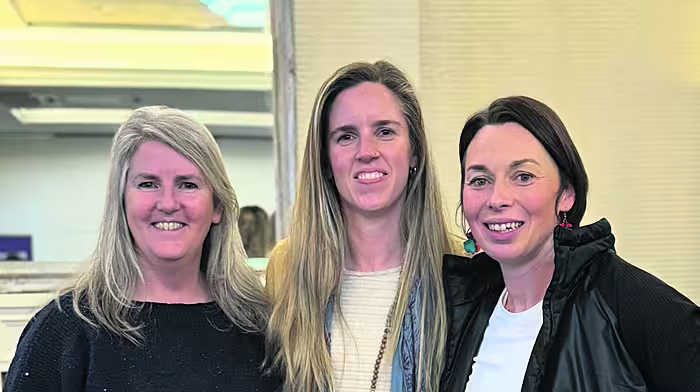BY LINDA HAMILTON
MY last column looked at the problem of magical thinking – the idea your thoughts or wishes can somehow influence the external world. Magical thinking is often associated with unrealistic positivity, such as the false idea you can cure diseases like cancer by thinking the “right” thoughts.
However, a type of magical thinking known as thought-action fusion (Taf) is also a feature of unrealistically negative thinking that can leave people convulsed by fear.
There are two main types of thought-action fusion – moral Taf (thinking about something immoral or negative is as bad as carrying it out) and likelihood Taf (thinking about something makes it more likely to happen).
Thought-action fusion can be especially acute in people with obsessive-compulsive disorder (OCD), who can be plagued by anxiety and guilt over unwanted intrusive thoughts.
For example, someone might think because they had the thought of a loved one dying in an accident, that this has increased the odds of a tragic accident. The person might then attempt to neutralise this “bad” thought by praying, or by thinking a “good” thought, or by various other compulsions. However, thought-action fusion is not confined to people with OCD. Research shows it’s a feature of other anxiety disorders. It can also be seen in eating disorders; a person may think they may gain weight simply by thinking about forbidden foods.
Car accident
In fact, most people are arguably prone to some degree of thought-action fusion – even psychotherapists. World-renowned CBT researcher and OCD expert Prof. Paul Salkovskis once asked therapists attending an OCD workshop to write down: ‘Today my partner (or best friend) will die in a car crash’. Only one third did this – the others changed the wording or said they were unable to do so.
I often ask clients if they would write down the above sentence, or some such variant. The results are similar – many people say they can’t or won’t do it.
Clearly, many of us are prone to a degree of superstitious, magical thinking. We may not realise it, but we do fuse with our thoughts to some degree. Our thoughts are just opinions, not facts. A person might have the thought they are useless, but that doesn’t mean they are useless. You may think XYZ is unsafe, but that doesn’t mean it is unsafe. You may think things are hopeless, but that doesn’t mean things are hopeless.
Learning to distance yourself from your thoughts, then, is crucial for good mental health. This is especially true when times are tough, when things may seem worse than they really are. If you see your thoughts as powerful and important indicators of danger – well, you may end up in all kinds of psychological bother.
Exercises
Thus, it’s a good idea to do some simple exercises to test the power of your thoughts. Ready?
First, can your thoughts move things? Find a piece of paper and place it on the middle of a table. Now, try to move the paper six inches to your left with your thoughts alone. Stay at the task for a minute, concentrating as hard as you can.
Second, draw a spot on a wall using a pencil. Try and remove the spot with your thoughts alone.
Third, make people do things using your thoughts alone. For example, focus on a man you see in a supermarket and get him to take off his t-shirt when paying at the checkout; when paying, get the cashier to give you all your shopping for free; when talking to someone, get them to say the phrase ‘I like vinegar in my soup’.
Finally, imagine winning the lottery. Pick a series of numbers. When you have selected the numbers, write out the sentence: ‘These will be the winning numbers’ three times. Make sure to check which numbers come up.’
Some of these exercises might seem silly or unnecessary. However, while you may know on an intellectual level that your thoughts can’t influence the external world, you might still feel a bit unsure on an emotional level (for example, the aforementioned car accident).
If you sometimes fuse with your thoughts, then, these exercises will drive home the point that there’s nothing magical about your thoughts. Thoughts really are just thoughts.
Linda Hamilton is a Kinsale-based cognitive behavioural therapist. If you would like to get in touch with her, call 086-3300807
For more information, go to www.kinsalecbt.com








